How do brands enter the market and consumers pursue pure beauty?
In recent years, there has been a wave of "purity" in the cosmetics industry, and "pure beauty" has become a strong force in the cosmetics segmentation track. Domestic pure beauty brands continue to explore new situations, and foreign pure beauty brands also usher in a new stage of development.
According to the data of "Analysis and Forecast of Pure Beauty Trend in 2021", the global pure beauty market will be $5.44 billion in 2020 and is expected to reach $11.56 billion in 2027. Among them, China market is the most promising and competitive gold track, accounting for 35% of the total market share. Take First Aid Beauty (hereinafter referred to as FAB Beauty) as an example. In 2018, Procter & Gamble Group acquired FAB Beauty. In 2020, it officially entered the China market and opened an online store. In September 2020, the Taobao trading index of FAB Beauty increased by 5,591.61%, and its sales exceeded 100 million yuan in just half a year. The development potential of China pure beauty market attracts many brands to lay out here.
The person in charge of Yiye brand said in an interview: "According to our long-term research and analysis of the big data industry report, it is found that young consumers are interested in streamlining skin care and plant skin care, and they also put forward more requirements for efficacy, safety, transparency and sustainability. This is also an important reason why Yiye has changed from a simple’ plant skin care’ brand to a’ pure beauty skin care’. "
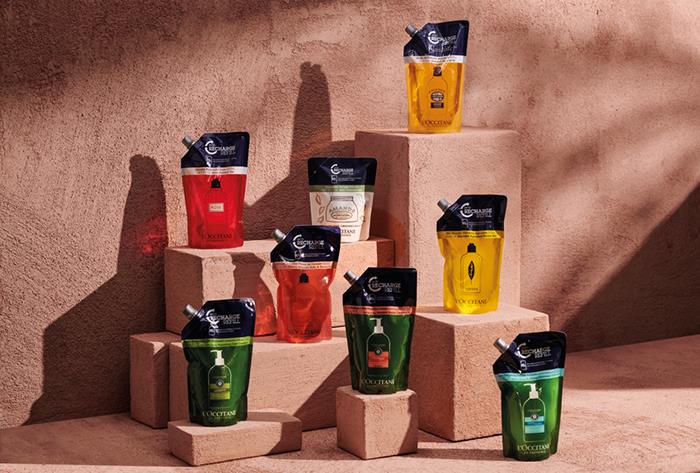
L’OCCITANE
Foreign brands are also actively involved in the China market. Take L ‘Occitane Group as an example. Melvita, a French natural skin care brand owned by L ‘Occitane Group, entered the China market in 2015, and ELEMIS, a British luxury aging skin care brand, entered the China market in 2020. "L ‘Occitane Group will also introduce the Australian clean beauty brand Grown Alchemist in 2023, bringing pure, natural and safe and healthy skin care experience to China consumers." Queenie LIN, executive director of L ‘Occitane Group in China, said.
Looking at the development of pure beauty, at first pure beauty was just a concept, which was used to describe products that did not contain some synthetic ingredients with certain safety risks. After that, the concept of pure beauty was further expanded, requiring products to achieve skin care in a pure way and find the balance of skin. Based on this concept, a number of domestic and foreign brands and products have been born one after another. Foreign brands FAB Urgent Care Beauty, REN Skincare, domestic brands Yiye and MCL Flower Xikou are all representatives. According to statistics, in recent years, more than 30 domestic and foreign pure beauty brands have emerged, and there are more than 7,000 notes on "pure beauty" in Little Red Book.
The pure beauty market is booming for a while, but at the same time, there are some drawbacks, such as blank market supervision, vague concept definition and lack of user awareness. The market performance of brands is also uneven, and how to straighten out the development context of "pure" market in chaos is still a difficult problem in front of this track.
The definition and standard from "fighting separately" to "unified consensus" need to be clarified urgently.
Although pure beauty is not a newborn, it still lacks a unified definition and standard, which leads to loopholes in the industry development norms. At present, the pure beauty brands on the market are basically "in their own way" and are implemented according to their own standards. For example, L ‘Occitane’s understanding of pure beauty is "plant-based, symbiotic with nature", and green raw materials, green production and green packaging are its guidelines for creating "pure beauty".
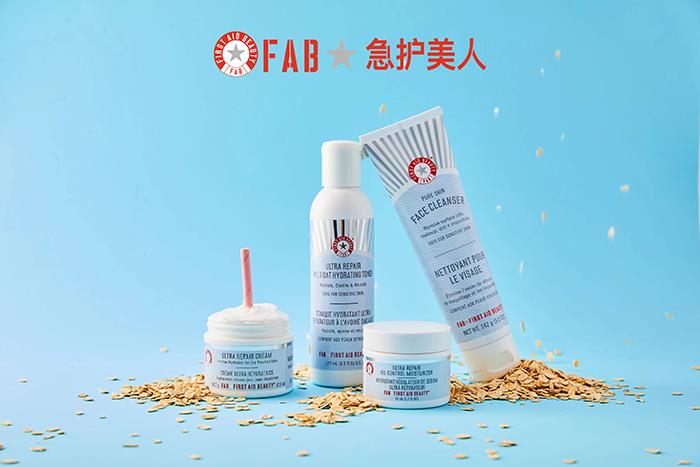
FAB urgently protects beauty
FAB, a pioneer brand of pure skin care, adheres to five core standards, that is, all products do not contain ingredients harmful to skin and human health (there are 1300 such ingredients); Adhere to the principle of zero cruelty, and all products have no animal experiments; Sensitive muscles are available; Complete dermatologist allergy test; Do not use artificial flavors. In addition, FAB Emergency Beauty also teamed up with Sephora to open a special area to define pure skin care standards for Sephora. Only brands that exclude 54 potentially harmful ingredients to the skin can enter the special area.
Similarly, domestic brands are also exploring and formulating standards and norms. In 2019, Huaxikou formulated the "Five Principles of Clean Pure Skin Care", including true label, purity without additive, efficacy demonstration, advocating virtue for goodness, and being natural and organic, as its principles for developing products. In addition, Huaxikou also formulated the first list of 2000+Never List risk raw materials in China, banned more than 2,143 kinds of risk raw materials, and standardized the "six major risk component systems", exceeding the EU and domestic ban standards.
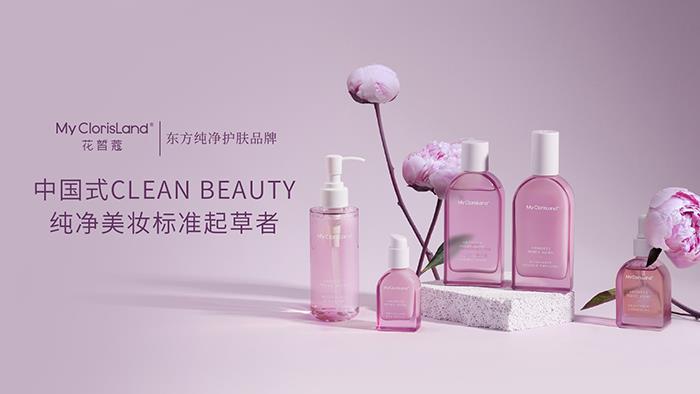
MCL huaxikou
In January of this year, Hua Xikou released the first Green Paper of Clean Beauty Pure Beauty in China, proposing a comprehensive interpretation and implementation measures for pure beauty. In July this year, Hua Xikou, as the first drafting unit of the group standard of pure beauty, and 14 research institutions jointly formulated the first domestic group standard of Clean Beauty and the standard of pure beauty of cosmetics, which were officially released and implemented in August. The group logo requires that the whole life cycle of products, that is, from raw materials, formula, design, packaging and production, should be fully implemented by adhering to the standard of "pure beauty" and put an end to "conceptual" and figurative products.
Coincidentally, in August this year, Yiye officially released the Technical Definition and Calculation Guide of Natural Ingredients in Cosmetics (hereinafter referred to as the group label), which promoted the domestic cosmetics industry to further explore natural and pure beauty by clarifying and quantifying the natural attributes of raw materials and products. While defining "natural ingredients" and "non-natural ingredients", the League Standard explains the concept of "natural derived ingredients" in detail and explains the calculation method of "natural source ratio". Among the 8,965 raw materials available for one leaf in China, the disputed raw materials in 4,421 are rejected, and the raw materials with high green natural index are preferred in the 4,544 all-green list to reduce the addition of artificial chemical components.
The person in charge of Yiye brand said that after defining nature, Yiye will promote the formulation of "General Rules for the Evaluation of Pure Personal Care Products" and "General Rules for the Evaluation of Green Personal Care Products" in conjunction with the Daily Chemical Association and experts in the industry. "Pure personal care" refers to cosmetics with "natural ingredients" and "naturally derived ingredients" as the main ingredients, which contain no safety controversial ingredients, and the products and raw materials are tested in line with animal welfare, with simple formula and environmentally friendly packaging. "Green personal care" refers to cosmetics whose production process meets the requirements of environmental protection, is harmless or less harmful to the ecological environment and human health, consumes less resources and energy, and has high quality.
The formulation of pure beauty standards is an important exploration for the development of the industry, which will promote the development of pure beauty industry in China. However, the formulation of standards is only the first step, and whether a consensus can be reached in the field of pure beauty, followed and implemented is the key to promoting the development of industry norms.
"Grasp both hands and be hard". Both safety and efficacy need to pass.
Pure beauty wants to win consumers, in addition to safety, efficacy is also the key. Xiao Su, the brand manager of Huaxikou, said that foreign consumers will pay more attention to safety, non-toxicity and environmental protection for "pure beauty", while domestic consumers will pay attention to the effectiveness of ingredients first, and then pay attention to the dimension of "safety". And "safety+effectiveness" cannot be separated from the support of scientific research strength.
For example, Huaxi Kou built a 1,600-mu peony planting base to create a traceable and verifiable raw material ecology. At the same time, we also pay attention to other local plants such as Luoshenhua and create exclusive raw materials for the brand. In addition, Hua Xikou cooperated with Peony Skin Care Science Research Center and Beijing Key Laboratory of Plant Resources Research and Development, and established Hua Xikou Innovation Research Institute of Chihuatun Chuangmei Center in conjunction with natural raw material supplier Givaudan. Developed a "biochip" technology platform and unique raw materials such as Luoshenhua acid and peony whole plant fermentation broth, and obtained national patents for self-developed components and plant extraction technology. The products such as Hua Xi Kou Luo Shen Hua series and Peony Flower series have achieved the effects of oil control, pore thinning, blackhead removal and light lines, anti-aging and so on through the actual measurement of human efficacy by SGS authoritative third parties.
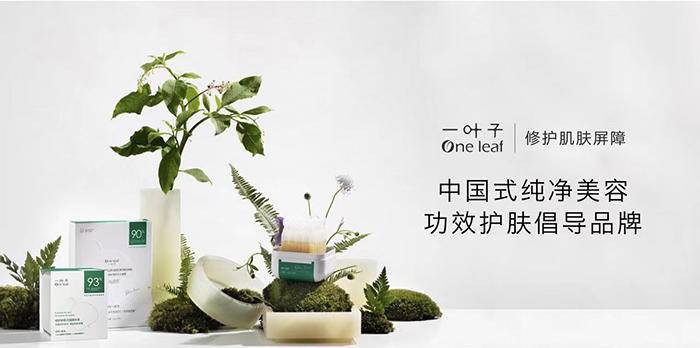
A leaf
One leaf, which also focuses on oriental plants, is locked in Longnan Olive. In view of the unstable formula of Olive, one leaf has repeatedly adjusted the formula to solve the problems of greasy skin and poor skin-friendliness, and achieved the effect of being lipophilic, hydrophilic and refreshing. "Song Yang, vice president of Shangmei Group, and the R&D backbone team went deep into overseas to learn technology, set up their own research team overseas in seven years, set up their own factories, and constantly learn and improve their understanding of pure beauty and breakthroughs in scientific research." The person in charge of a leaf brand said.
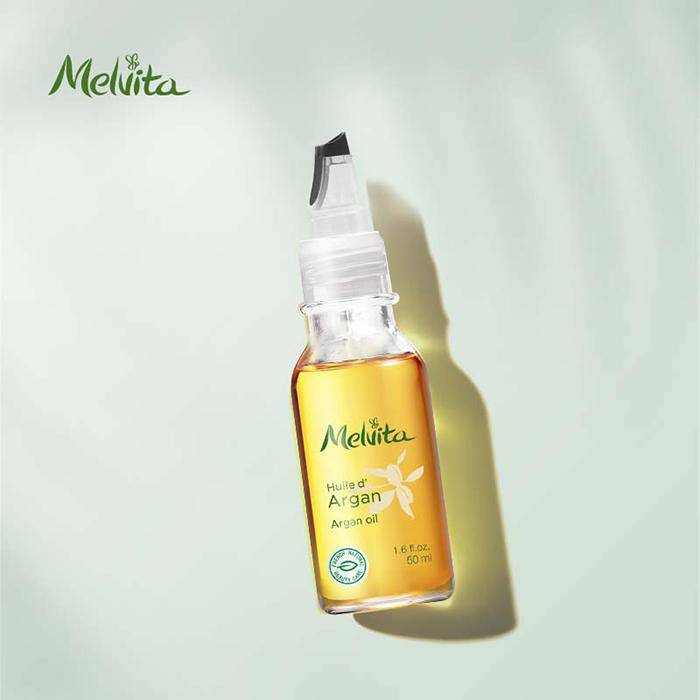
Melvita, a brand of L ‘Occitane Group.
Foreign brands are also constantly exploring the "pure Dafa". For example, the star product of French natural brand Melvita, Moroccan nut kernel oil, is selected from unpolluted Moroccan nut forest and extracted by cold pressing. Water, chemical solvents, artificial flavors and pigments are not added in the whole pressing process. Its best-selling rose fragrance conditioning water is selected from Damascus roses produced in Iran. No pesticides are used in the planting process, and the fresh rose petals are distilled by "single distillation method" when making, and the roses are not extracted in advance to ensure that the flower water contains rich rejuvenation essence.
FAB, which focuses on clean and non-irritating formula, is dedicated to providing targeted skin care solutions for people with eczema, acne, redness, dryness and sensitive skin. Its core component, micron colloidal oats, was wet-ground in a specially researched low-temperature sterile environment, and the colloidal oats suspension with an average particle size of 11.84um was made. The particle size was only one-third of the pore size, which was far less than the 300 micron oat fine powder added in conventional skin care products, thus better achieving moisturizing, repairing and antioxidant effects.
For pure beauty brands, only by insisting on independent product innovation and attaching importance to the research of core ingredients in the skin care market can we truly achieve natural purity and effective beauty.
The combination of the new demand of consumers and the concept of sustainable development is the deep reason to help the development of pure beauty market in China. Yolanda, brand director of FAB Emergency Beauty, said in an interview that FAB Emergency Beauty is very optimistic about the development prospect of China pure skin care market. The policy support of the concept of sustainable development has greatly encouraged the development of pure beauty industry. At the same time, brands in the industry are actively exploring purity in raw materials and packaging, and consumers, especially young consumers, are increasingly aware of environmental protection and pure and streamlined skin care, which has become a helping factor for the development of pure skin care market.
The safety of products and its potential environmental impact are the core of pure beauty. Under the dual-carbon strategy and sustainable development strategy, "pure beauty" is a trend and an opportunity. Whether it can detonate the track and become a "dark horse" is worth looking forward to.
(Xinhuanet Yang Yingying)